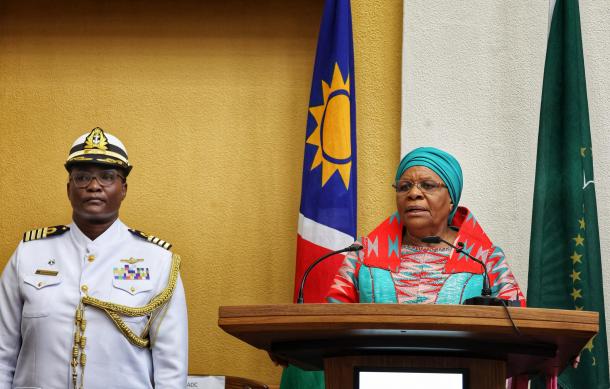
President Netumbo Nandi-Ndaitwah has laid out seven priority areas and eight key economic enablers in her first State of the Nation Address, aiming to drive Namibia’s socio-economic transformation over the next five years.
She urged Namibians to take collective ownership of these priorities to ensure meaningful progress. The focus areas include agriculture, sports, youth empowerment, quality education and training, the creative industries, health and social welfare, land, and the provision of housing and sanitation.
President Nandi-Ndaitwah said these priorities, along with eight critical economic enablers, will be integrated into the upcoming sixth National Development Plan and into individual ministerial plans. She stressed the need to attract greater investment, both local and international, by creating a supportive environment for investors. This, she said, will allow the country to diversify the economy and reduce youth unemployment.
The president acknowledged that Namibia has not fully invested in value addition or the beneficiation of natural resources. This, she says, will change under the current administration, which will prioritise strategic projects funded through a combination of the national budget, public-private partnerships, and foreign and domestic investments.
She highlighted the mining sector as a cornerstone of Namibia’s economic ambitions, contributing 12 percent to GDP and 50 percent to foreign exchange earnings. She called on the sector to embrace beneficiation policies by processing more raw materials locally.
Early developments in green iron production, clean fertiliser manufacturing, and clean fuel bunkering were noted as signs of progress. She also pointed to the country’s hydrocarbon potential, particularly the possible production of 150,000 barrels of premium crude oil per day, as a game-changer for the economy. The president has placed oversight of the oil and gas sector under the Presidency to ensure its potential is realised in a way that benefits all Namibians.
Her administration will fast-track strategic partnerships, streamline regulations, and invest in infrastructure to harness these resources. She noted that first oil production is a key goal and that its realisation would boost energy security, expand rural electrification, and drive long-term growth.
Energy and water security were also highlighted as essential for mineral beneficiation. Desalination plants in the Erongo region are expected to support mining output and overall economic activity. President Nandi-Ndaitwah emphasised that Namibia, as the world’s second-largest uranium producer, must explore its full energy potential, including the possibility of nuclear energy in future.
Plans are also underway to establish industrial zones near coastal ports, positioning them as vital export hubs in Namibia’s new economic landscape.





